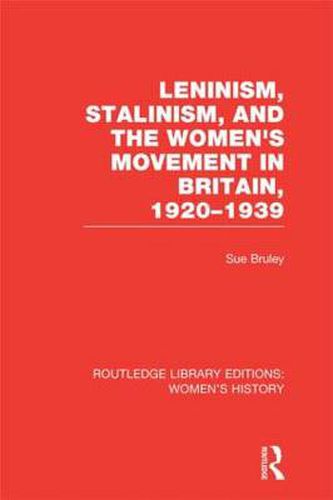Readings Newsletter
Become a Readings Member to make your shopping experience even easier.
Sign in or sign up for free!
You’re not far away from qualifying for FREE standard shipping within Australia
You’ve qualified for FREE standard shipping within Australia
The cart is loading…






This book offers a detailed examination of the interaction between socialism and feminism through the lens of one particular socialist organisation, the Communist Party of Great Britain, from its foundation in 1920 until the outbreak of the Second World War.
The study of socialism and feminism in the CPGB can be divided into four major areas - the party’s concept of socialism and the role of women in a future society; the party’s relationship to the feminist movement; the work of the party in relation to specific women’s issues; and how the sexual division of labour operated within the party.
The author here defines and explains the socialist and feminist traditions in Britain and describes the ways in which they interacted, both at the level of theory and of practice. Sources from party press and reports to interviews with party members and non-party written and oral evidence and accounts feed into this thorough chronological treatment which outlays the changes within the CPGB during the 1920s and 30s in relation to feminism.
$9.00 standard shipping within Australia
FREE standard shipping within Australia for orders over $100.00
Express & International shipping calculated at checkout
This book offers a detailed examination of the interaction between socialism and feminism through the lens of one particular socialist organisation, the Communist Party of Great Britain, from its foundation in 1920 until the outbreak of the Second World War.
The study of socialism and feminism in the CPGB can be divided into four major areas - the party’s concept of socialism and the role of women in a future society; the party’s relationship to the feminist movement; the work of the party in relation to specific women’s issues; and how the sexual division of labour operated within the party.
The author here defines and explains the socialist and feminist traditions in Britain and describes the ways in which they interacted, both at the level of theory and of practice. Sources from party press and reports to interviews with party members and non-party written and oral evidence and accounts feed into this thorough chronological treatment which outlays the changes within the CPGB during the 1920s and 30s in relation to feminism.